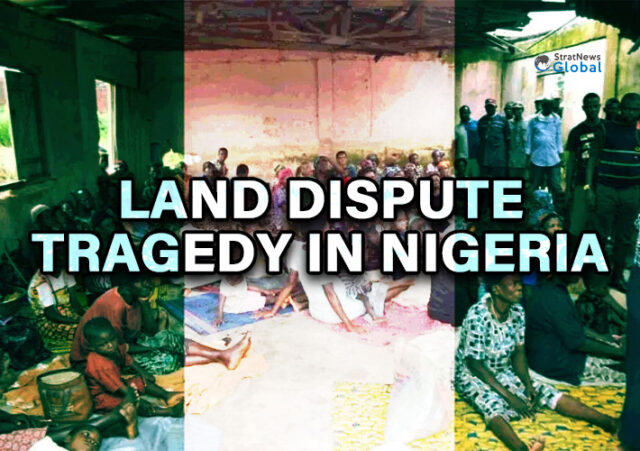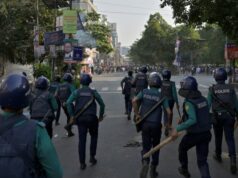At least 16 Nigerian soldiers, including four officers, were killed in southern Nigeria’s Delta state while attempting to resolve a violent clash between two communities. This tragic incident highlights the complex security situation in Nigeria, where the military is often deployed to de-escalate deadly inter-communal violence over issues like land disputes and resource control.
The troops, part of the 181 Amphibious Battalion, had been sent to the Bomadi area of Delta state to respond to distress calls over fighting between the Okuama and Okoloba communities. The conflict stemmed from a long-running land dispute which had recently escalated, resulting in the abduction of one person.
According to Brigadier General Tukur Gusau, a Defense Headquarters spokesman, the soldiers were surrounded and killed on Thursday by armed youth from the communities while trying to negotiate the release of the abducted individual. Among the dead were the battalion’s commanding officer, two majors, one captain, and 12 other soldiers.
Gusau stated that some arrests have been made related to the attack on the troops, who had been deployed in an attempt to keep the peace amid the escalating inter-communal conflict. The military has launched an investigation into the killings, but no motive has been provided yet.
Some reports said that in retaliation, the army set an entire village belonging to one of the warring communities ablaze.
BREAKING: Community in Delta state where soldiers were killed has been set on fire by Nigeria terrorists army @HQNigerianArmy pic.twitter.com/f7obJgh2wi
— Okwute Biafra (@odimgbe_peter) March 17, 2024
This incident occurred in Nigeria’s Delta region, which has long grappled with unrest related to poverty, unemployment, and tensions between local communities and the oil industry that dominates the area economically. Clashes over land ownership and compensation for environmental damage by oil companies have frequently erupted into violence.
More broadly, Nigeria continues to face severe security challenges from various armed groups, militias and inter-communal conflicts across its different regions. In the north, an Islamist insurgency by Boko Haram and splinter factions has caused immense bloodshed over the past decade. Central areas like Plateau state have seen cycles of violence between Muslim herders and Christian farmers driven by demographic pressures, climate change and competition over dwindling arable land.
The military is often called upon to intervene in these complex conflicts, conduct security operations and protect civilians caught in the violence. However, troops also stand accused of human rights abuses at times. The Nigerian government continues to grapple with finding political solutions and addressing the root economic, environmental and ethnic grievances fueling much of the unrest.
Also See:
In a career spanning three decades and counting, Ramananda (Ram to his friends) has been the foreign editor of The Telegraph, Outlook Magazine and the New Indian Express. He helped set up rediff.com’s editorial operations in San Jose and New York, helmed sify.com, and was the founder editor of India.com.
His work has featured in national and international publications like the Al Jazeera Centre for Studies, Global Times and Ashahi Shimbun. But his one constant over all these years, he says, has been the attempt to understand rising India’s place in the world.
He can rustle up a mean salad, his oil-less pepper chicken is to die for, and all it takes is some beer and rhythm and blues to rock his soul.
Talk to him about foreign and strategic affairs, media, South Asia, China, and of course India.





